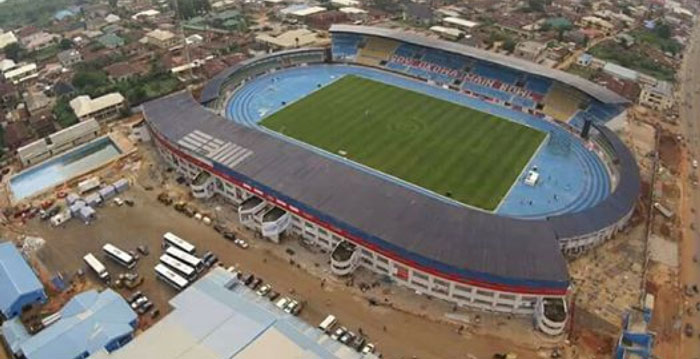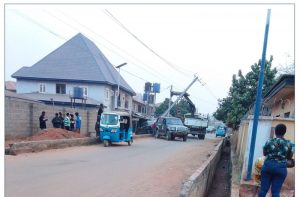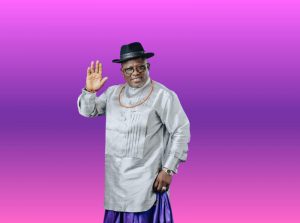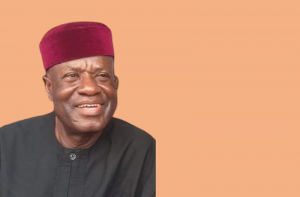
Between 1, October 1960 when Nigeria gained her independence from Great Britain and April 1967, there was no such thing as states in Nigeria.
What we had were regions; four in total: Eastern Region, Mid-Western Region, Northern Region, and Western Region.
Creation of states in Nigeria started in May 1967 by General Yakubu Gowon, who assumed office on August 1, 1966 after the coup that deposed General Johnson Umunnakwe Aguyi-Ironsi.
General Gowon created twelve (12) states.
After General Gowon came General Murtala Mohammed.
General Mohammed created seven (7) more states in addition to the existing twelve, thereby bringing the total number of states in Nigeria then to nineteen (19).
Reports have it that Generals Gowon and Mohammed had different reasons for creating the states that they created.
For example, it was rumoured that General Gowon created states to checkmate or spite his colleague and rival in the Easter part of Nigeria, Col. Chukwuemeka Odumegwu-Ojukwu.
General Olusegun Obasanjo who became the Head of State of Nigeria after the death of General Mohammed who was assassinated in the bloody coup of February 13, 1976, did not create any state.
Instead of creating more states, he successfully handed over power to the first post-independence democratically elected government headed by Alhaji Aliyu Shehu Shagari.
That was on October 1, 1979.
With the coming of a democratically elected government in 1979, different communities in Nigeria began to agitate for states to be created for them, in line with the provisions of Section 8 of the 1979 Nigerian Constitution, which gave them the right to do so.
In other words, the agitation for states-creation took off with full force with the advent of democracy in 1979.
One of the communities that agitated for a state at that time was Anioma, whose people were then in Bendel East Senatorial District of Bendel State.
Senator Nosike Ikpo, who doubled as the leader of Anioma State Movement and the representative of Bendel East at the Senate, was in the forefront of that agitation.
He was the one who personally presented the case for the creation of Anioma State, out of the former Bendel State, to the National Assembly.
On receipt of Senator Ikpo’s request, Hon. Abubakar Tugar, the then Chairman of the House of Representatives Committee on state-creation, undertook a tour of the Anioma area.
The tour was undertaken to confirm:
i. The authenticity of the signatures of all the councilors of the nine (9) local government areas that made up Anioma, as well as those of the members of Bendel House of Assembly; and
ii. Other claims made by Senator Ikpo, the leader of the Anioma State Movement, on his request.
Senator Ikpo, now a nonagenarian and an Obi (a first-class red cap chief) in his home town of Ibusa, Oshimili North Local Government Area, Delta State, was called upon to defend his demand before the National Assembly Committee on state-creation (Joint Committee of House of Representatives and the Senate). And he did that successfully.
The said Joint Committee of House of Representatives and the Senate on state-creation was headed by Senator Barkin Zuwo. Remember him?
At the end of the Committee’s work, Anioma State was recommended for a referendum.
It might interest you to know that throughout that time that Senator Ikpo was making case for Anioma State, nobody from the Core-Delta – Urhobo, Isoko, Itsekiri, and Ijaw – presented a request for a state to be created by them.
Not even one.
It was during the debate on the creation of Anioma State that somebody somewhere suggested the need for the Core-Delta to have a state, preferably Delta State, of their own.
That now left the government of Alhaji Shehu Shagari with the burden of creating two states, Anioma and Delta States, out of Bendel State on the Committee.
While Senator Ikpo and other Aniomas were waiting for Anioma State to go for a referendum, something unusual happened.
General Mohammadu Buhari, the present Nigerian President, led a military coup that overthrew the democratically elected government of Alhaji Shehu Shagari and its constituent state governments.
It is funny to note that the same General Mohammadu Buhari who destroyed a democratically elected government suddenly developed love for democracy.
Isn’t that funny?
Na wa o!
Since what goes around, as they say, usually comes around, General Buhari was himself booted out of office by one of his colleagues, General Ibrahim Badamasi Babangida, in yet another coup.
Did I hear you say, ‘nemesis!’ Na you talk am o!
With the coming of General Babangida, all those communities who were agitating for their own states during the tenure of Alhaji Shehu Shagari, now channelled their agitations to the Armed Forces Ruling Council, AFRC, (formerly Supreme Military Council, SMC) headed by General Babangida.
In order to continue with the procedures of creating Anioma and Delta States, as recommended by the defunct National Assembly, a Joint Committee of the people of Anioma and Core-Delta was set up.
The Joint Committee, which was headed by the late Ebu-born Israel Amadi Emina, had Dr. George Orewa, Francis Halim, Chief E. K. Clark, Professor Okobah, Dr. Esiri, among others, as members.
The Committee, which met at the home of Dr. Esiri in Abraka, was charged with the duty of working out the modalities for the smooth creation of Anioma and Delta States.
Along the line, the Israel Amadi Emina-led Committee discovered that the AFRC was not disposed to creating two states, Anioma and Delta, out of Bendel State, but just only one state, Delta.
So, instead of losing the chain and losing the dog, as one of my friends would say, the wise members of the Committee decided to work jointly for the success of the creation of Delta State.
In order to achieve that goal, five (5) towns were suggested as the capital of the proposed Delta State. The towns, in alphabetical order, were Abraka, Kwale, Sapele, Ughelli, and Warri.
No town from the Isoko and the Ijaw areas was nominated.
Votes, like in every election, were cast for the above-mentioned five towns. At the end of that process, Abraka and Sapele got five (5) votes each.

Unfortunately, the battle of supremacy crept in; neither the people of Abraka nor those of Sapele accepted to step down for the other.
Consequently, the Committee decided to refer the matter to the Armed Forces Ruling Council, AFRC, for its final decision.
When the matter got to the Armed Forces Ruling Council, something funny and interesting happened.
Can you guess what was it that happened?
Asaba, which was never on the list of the five suggested capitals for the proposed Delta State, miraculously became the capital of Delta State.
I was at the office of Hints magazine in Opebi, Lagos, when I heard the good news on the radio.
Those of us who were Deltans at that place celebrated our new state with pomp and pageantry.
The question I expect you to ask me at this juncture is How did Asaba come into the equation and picture?
There are four possible answers to this question.
- There was a rumour that while AFRC was considering which of the towns, between Abraka and Sapele, to be made the capital of Delta State, an insider reminded General Babangida that Abraka should never be considered as the capital of Delta State. His reason being that Abraka is the hometown of Chief Great Ogboru, the businessman who was alleged to have mater-minded the failed coup of April 1990 led by Gideon Orka;
- Some political observers believed that it was wise of General Babangida to have made Asaba the capital of Delta State. Their reason being that it wouldn’t have made any type of sense if the people of Core-Delta (the Urhobos, the Isokos, the Itsekiris, and the Ijaws), who got the state named after their area, also succeeded in having one of their towns as the capital of the state. Did you get the argument?
Those thinkers concluded that making Asaba the capital of Delta State was another way of pacifying the Aniomas for bearing a strange name, Delta; a name that does not belong to them;
- Some people, especially those from the Core-Delta (the Urhobos, the Isokos, the Itsekiris and the Ijaws) believe that General Babangida influenced the choice of Asaba as the capital of Delta State, because his late wife, Dr. (Mrs.) Maryam Babangida was an indigene of Asaba.
- The last school of thought believed that making Abraka or Sapele the capital of Delta State, at that time of their rivalry, would have pitched the people of Abraka and Sapele against one another in a brutal brotherly war. They based their argument on the fact that none of the two towns accepted to step down for each other.
Delta State was finally created for the people of Anioma and the people of Core-Delta.
Fortunately or unfortunately, depending on which side of the divide you belong, Asaba miraculously became the capital.
One of the above four reasons may be true for the adoption of Asaba as the capital of the ‘Big Heart’ state. Which of these reasons do you believe?
I would like to read from you. Drop your comments in the space provided below.
Looking forward to reading from you.




